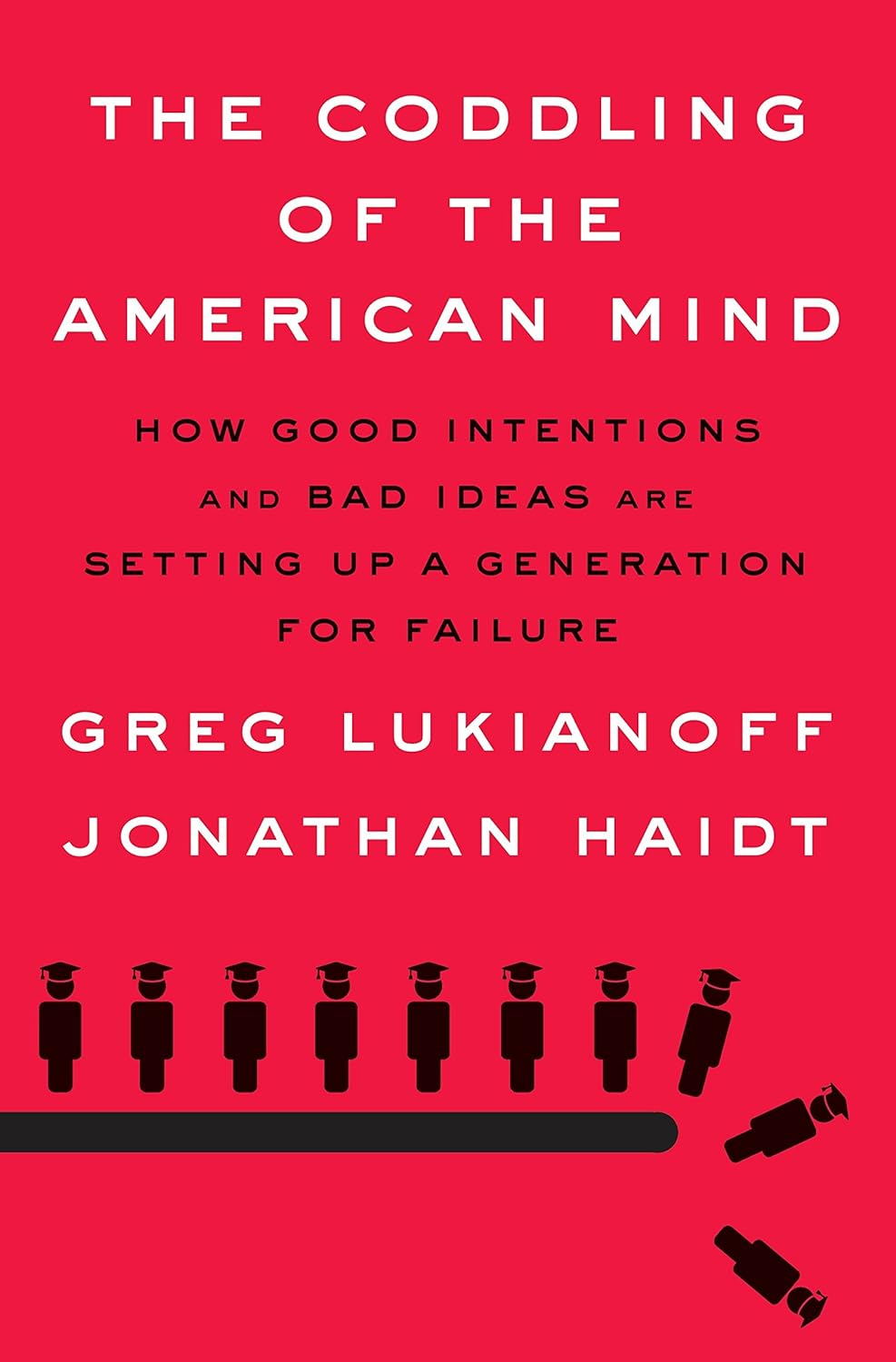Review: The Coddling of the American Mind: How Good Intentions and Bad Ideas Are Setting Up a Generation for Failure

I have finally read my first Jonathan Haidt book. He’s been simmering in my to-read pile for some time, I think due to a little nervousness as to whether I’d appreciate him as much as I had hoped.
I became aware of Haidt after noticing Tim Keller often quote him as a modern philosopher / social scientist. I had actually hoped to read The Righteous Mind first (which currently sits in a pile to read), but found this audiobook. The title of the book certainly made me waring. The word ‘coddling’ feels loaded. And any book speaking on the topic of current generations ‘failing’ always makes me sceptical. And, of course, it is American. I needn’t have feared.
This book is an excellent case study in understanding the complex array of factors that have radically reshaped a new generation of people. It has as a focus those on university campuses in the early-mid 2010’s, so we are talking late Gen-Y / early Gen-Z (and following). Through plenty of examples and tracing of recent historical data, Haidt and Lukianoff are able to account for how themes such as individual rights, offensive speech, and intersectionality have arisen in the current political and social climate.
Late in the book, before advocating for particular ways a reader might respond to the unfolding challenges, Haidt and Lukianoff reveal their own political persuasions as a gesture of openness. What I found particularly fascinating about the book is that both authors are reasonably left-leaning in their politics, while much of what they write about could sound at home in something more akin to right-leaning literature. I commend them for what I thought was a very fair and (perhaps surprisingly) bipartisan work.
Overall, the book provides an excellent understanding of ‘how we got here’. While some of their suggestions for ‘what we do now that we find ourselves here’ are, at times, a little ‘out there’, this is nevertheless an important work.
Who wrote it
Greg Lukianoff is the president and CEO of the Foundation for Individual Rights in Education, specializing in speaking and writing on the topic of free speech.
Jonathan Haidt is the Thomas Cooley Professor of Ethical Leadership at New York University’s Stern School of Business
Why I read it
Having greatly appreciated the teaching and insight of Tim Keller, I’m always keen to read the writers that he most often seems to quote and regard.
What I liked
It was well written, insightful, and well argued. I’ll definitely be reading more of Haidt.
I really appreciated how thoughtful they were in articulating well-reasoned and well-researched arguments.
What I didn’t
The book is very obviously written by American’s in an American context. It’s not a flaw of the book. But it did make it hard at points to grasp the story they were unpacking. The context of Australia is very different, and some of the issues they face have no direct correlation with our own experience. Overall, it wasn’t hard to build the necessary bridges to my own context.
Major Takeaway
A culture that allows the concept of “safety” to creep so far that it equates emotional discomfort with physical danger is a culture that encourages people to systematically protect one another from the very experiences embedded in daily life that they need in order to become strong and healthy.
From time to time in the years to come, I hope you will be treated unfairly, so that you will come to know the value of justice. I hope that you will suffer betrayal because that will teach you the importance of loyalty. Sorry to say, but I hope you will be lonely from time to time so that you don’t take friends for granted. I wish you bad luck, again, from time to time so that you will be conscious of the role of chance in life and understand that your success is not completely deserved and that the failure of others is not completely deserved either. And when you lose, as you will from time to time, I hope every now and then, your opponent will gloat over your failure. It is a way for you to understand the importance of sportsmanship. I hope you’ll be ignored so you know the importance of listening to others, and I hope you will have just enough pain to learn compassion. Whether I wish these things or not, they’re going to happen. And whether you benefit from them or not will depend upon your ability to see the message in your misfortunes.
Who should read it
Well worth a read for anyone who works with Gen-Z in some capacity (pastors, teachers, etc.) or for those looking for growing their cultural understanding of the times we live in, how we got here, and how we might respond.
The Coddling of the American Mind
I have finally read my first Jonathan Haidt book. He's been simmering in my to-read pile for some time, I think due to a little nervousness as to whether I'd appreciate him as much as I had ...
